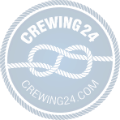
FEBRUARY 13, 2013 – More details are emerging on the two 173,400 cu.m. LNG carriers with LNG-fueled two stroke engines ordered by Teekay LNG Partners from Daewoo Shipbuilding & Marine Engineering in Korea (see earlier story).
The vessels will each have two MAN Diesel & Turbo ME-GI dual-fuel, ultra long two-stroke gas injection engines. These engines received DNV type approval in 2010 and their use as part of an innovative propulsion package is claimed to give significant fuel savings when compared to propulsion commonly used for LNG carriers today.
DNV says its experience from risk assessments of LNG-fueled ships shows that a gas-fueled main engine has the same risk level as a diesel-fueled main engine. One reason for the low risk is that the main engine undergoes rigorous type approval and testing regimes as well as being subject to stringent rule and regulatory requirements.
The new electronically controlled, two-stroke ME-GI engines from MAN Diesel & Turbo have undergone extensive testing. The engines will automatically switch between burning LNG and fuel oil when power is reduced to15% load, making port-to-port operation on LNG possible.
"These engines place us at the forefront of technology in the marketplace," says Tony Bingham, Teekay's technical manager for LNG. "We benefit, our charterers benefit and so does the environment through lower SOx, NOx, CO2 and particulate emissions."
"We will install a revolutionary reliquefaction plant which consumes less than 300 kW," says Mr. Bingham. "This enables us to re-liquefy any excess boil off at speeds below 15 knots. Link this capability together with DSME's patented sealed LNG containment system and we can ensure that no boil off is burnt in the gas combustion unit at any speed. This unique design ensures that the maximum cargo is delivered to the customer at the lowest unit freight cost in the industry."
DNV is providing full classification services for the newbuilding project. "As the class society that has approved most of the gas-fueled vessels built to date, DNV has played a central role in the evolution of gas engine technology," says Nick Roper, DNV's District Manager for the Pacific region.
Teekay's new vessels are scheduled for delivery in 2016 and the company has an option to buy three additional vessels. The delivery time coincides with expected growth in the U.S. LNG export market and a wave of increased demand for LNG carriers. The new vessels will be among the largest LNG carriers able to transit the Panama Canal after its expansion, making them ideal for U.S. LNG exports.
![[ad-side]](http://www.crewing24.com/ad_images/93_banner.jpg)
![[ad-side]](http://www.crewing24.com/ad_images/89_banner.png)
![[ad-side]](http://www.crewing24.com/ad_images/103_banner.jpg)
![[ad-side]](http://www.crewing24.com/ad_images/87_banner.png)
![[ad-side]](http://www.crewing24.com/ad_images/82_banner.jpg)
![[ad-side]](http://www.crewing24.com/ad_images/48_banner.jpg)
![[ad-side]](http://www.crewing24.com/ad_images/110_banner.png)
![[ad-side]](http://www.crewing24.com/ad_images/102_banner.jpg)
![[ad-side]](http://www.crewing24.com/ad_images/100_banner.jpg)
![[ad-side]](http://www.crewing24.com/ad_images/85_banner.jpg)